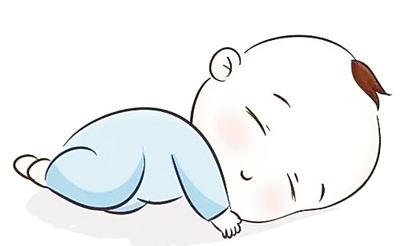Winter weather is cold, the baby is coming, how should the new mother take care of it? Maybe you're a new mom, don't be afraid. Next, I will introduce some winter nursing techniques for newborns, which you must learn well.

The room temperature is about 24.
The room temperature in the south may be too low in winter, less than 20, which may cause the newborn's nose to block, and parents should find ways to heat up. You can use an air conditioner or a heater with a warm air function to keep the room temperature constant at around 24 degrees Celsius. In winter, there is central heating in the northern room, and the main room temperature should not be too high, otherwise it may lead to increased body temperature, fever and dehydration of newborns. When the indoor air is too dry, you can sprinkle some water on the ground or use a humidifier to increase the indoor humidity.
Keep indoor air circulating.
Keep the room ventilated in winter and don't let the room where the mom and baby live "airtight". Fresh air is very important for mothers and newborns. Open the windows regularly every day, as long as convective winds are avoided. Otherwise, air pollution in the small environment is not good for maternal and infant health. Smoking is also important (like Dad's cigarettes, etc.). The room should not be contaminated, otherwise it will easily cause respiratory diseases in newborns.
The baby's body temperature should be measured twice a day.
Keeping newborns warm should not be excessive, otherwise it is very harmful. Parents can judge whether it is suitable for warmth according to the room temperature and the child's state. In principle, it is advisable for newborns to have a normal complexion, normal limb temperature and no sweating. Newborns have excessive sweating on the face, body temperature exceeding 37.5 degrees (when there is no disease), and abnormalities such as restlessness and irritability, indicating that it is too hot, and should be reduced or loose. When the newborn's hands and feet are cold and the body temperature is below 36 degrees, it indicates insufficient warmth. The room temperature should be raised appropriately, and clothing should be added or other heating measures should be taken. The baby's body temperature should be around 37. If the body temperature is excessive, it may be a fever.
Pay attention to winter feeding for newborns
Breastfeeding is much less worry-free than artificial feeding. Breastfeeding is convenient to consume and does not require attention to the mixing temperature. Babies don't have to wait to eat in time. The nutrients in breast milk are more easily digested and absorbed by newborns than formula. Therefore, if conditions permit, mothers should choose to breastfeed as much as possible.
Pay attention to the number of breastfeeds
Newborns can be breastfed after birth and should be fed irregularly according to their needs to meet the nutrients they need for growth and development. Beginners should pay attention to the fact that postpartum fatigue coupled with non-stop feeding and changing diapers during the day often leads to mental fatigue at night. When the baby needs to suck, some mothers will choose to lie down and feed, which is very dangerous, because newborns tend to be close to their mothers when feeding, and if they are not careful, they will be blocked by their own breasts, resulting in tragedy. Therefore, mothers should try to sit and eat.
Winter cleaning and care for newborns
Now the conditions are better. Basically, after the newborn is born, they can choose to bathe or swim in the hospital. After returning home, if parents want to bathe the newborn, the temperature of the bathroom is kept at about 30, do not wash too long. After washing, scrub and disinfect the newborn's navel with 75% alcohol, replacing the umbilical cord (or umbilical patch). If the newborn's umbilical cord has not completely fallen off, the clothes and diapers in contact with the umbilical cord residue must be kept clean and dry, and the diapers should be replaced in time to avoid wet diapers from wetting the navel and causing infection.